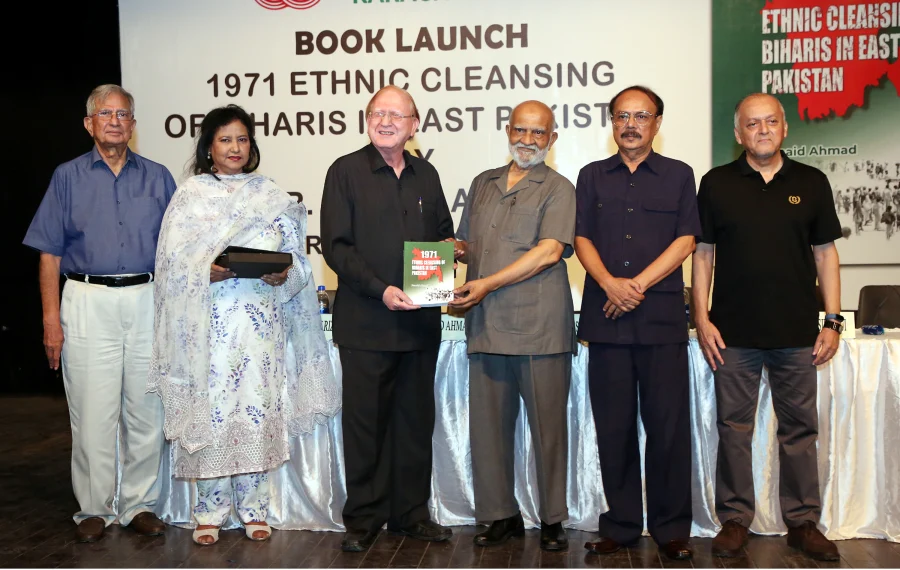Arts Council of Pakistan Karachi recently hosted the launch of Junaid Ahmad’s book, “1971 Ethnic Cleansing of Biharis in East Pakistan,” at Auditorium 1. The event was presided over by Mahmood Shaam, with notable speakers including Secretary Arts Council Professor Ejaz Farooqui, Ibnul Hasan Rizvi, Professor Birjees Haroon, Hassan Imam Siddiqui, and the author, Junaid Ahmad. Mahmood Shaam praised Dr. Junaid Ahmad’s research capabilities, commending his dedication to uncovering the truth and challenging established narratives.
Shaam emphasized the book’s importance, stating that it is a valuable asset for the new generation, offering a profound reflection on the migration during the partition of India. He contrasted the experiences of wealthy landowners who migrated by plane with the poor who suffered violence on buses and trains. Shaam also criticized Pakistan’s inconsistent immigration policies, noting the discrepancy between the reception of Afghan refugees and the legal challenges faced by some Pakistanis. He highlighted the book’s detailed account of India’s role in the 1971 conflict, as acknowledged by many Indian and Bangladeshi leaders.
Professor Ejaz Farooqui expressed his delight that the book honors individuals whose histories are largely unknown to today’s students. He underscored the necessity of transmitting this historical knowledge to the younger generation, asserting that the story of Biharis is an integral part of Pakistan’s history. Farooqui argued for the rightful place of Biharis in Pakistan, commending their hard work and resilience.
Hasan Imam Siddiqui described Junaid Ahmad’s book as a significant research work that delves into Bihari languages and literature. He pointed out the limited space allocated to Biharis in Bangladesh and its adverse effects on their language and culture. Siddiqui commended Ahmad for including census data and portraying Biharis as hardworking and kind-hearted people.
Ibn-ul-Hasan Rizvi discussed the book’s structure, highlighting its seven chapters. He revealed the book’s unprecedented disclosures about the ethnic cleansing of Biharis and non-Bengalis by Mukti Bahini militants and Indian soldiers from March 1971 to February 1972.
Rizvi emphasized that the book exposes atrocities committed by Indian-trained militants and occupying forces. Professor Birjees Haroon praised Junaid Ahmad for his bravery in addressing a sensitive topic that many historians avoid. Haroon noted that the book sheds light on Bihari education and literature, presenting a comprehensive history of the Biharis.










